CAMP STRIKER, Iraq (Army News Service, May 21, 2008) - Operation Marne Piledriver, the first major operation initiated by Task Force Marne that targeted capacity building through the Mahmudiyah neighborhood, is drawing to a close, though many projects will continue on their own.
Operation Marne Piledriver kicked off in earnest April 15 with an Iraqi Army-led air assault and clearing operations in the Mahmudiyah area, about 26 kilometers south of Baghdad.
Although the IA has led air assaults in the past, this particular mission showcased its abilities.
"This showed that Iraqis are securing the area, ridding it of the last bastion of [al-Qaeda in Iraq] and simultaneously injected projects, both US- and Iraqi-funded, such as clean water, agricultural and other business opportunities and [aimed] to grow the trust in Iraqi Security Forces," said Col. Dominic Caraccilo, commander of 3rd Brigade Combat Team, 101st Airborne Division (Air Assault).
From refurbishing schools, clinics and water treatment facilities to rejuvenating the poultry and fish industries, the operation has yielded several projects to improve quality of life for Iraqis on many fronts.
"I think [the Iraqis have] benefited a lot, and I think they're only seeing the beginning of the benefits," said Vince Valle, team leader for the embedded Provincial Reconstruction Team.
"The idea is to help them get some self-sustaining projects that will generate economic activity and possibly generate jobs. We are seeing that already, and we'll see that a lot more as the activities develop," Valle said.
<b> Water for Life </b>
While all the capacity-building projects provide essential services to the local populace, Caraccilo said the most critical improvement is providing clean water to the people of the qada.
"If you have clean water you can have just about anything; it's the baseline for all needs," Caraccilo said. "We recognize that and, more importantly, the [Government of Iraq] in this qada recognizes that. That's why they're funding the Qaqa Water Treatment Plant which provides 40 percent of the water to the entire qada."
Plans are still in progress to run a nine-kilometer pipe from the Mushada Water Treatment Plant, which will provide another 30 percent of the qada's water supply to Mahmudiyah. Once the water projects are complete, Caraccilo said 85 percent of the qada will have clean water.
"Water is important even when it comes to produce or livestock, as well as human beings," said Lt. Col. Linda Capobianco, deputy team leader of the Baghdad-4 Provincial Reconstruction Team attached to 3rd BCT, 101st Abn. Div. "It's the interconnectivity between each of the projects."
Almost as important as the projects themselves, Caraccilo said it is necessary to have the government of Iraq and local agencies involved in the process from start to finish. So delays, like the start of the water pipe, are okay because it means the government is working through how to make it happen.
"It does no good for us to just come to the rescue and give them clean water. We can do that, but it's a temporal fix," Caraccilo said. "A temporal fix is not what this country needs; it needs people engaged in the process."
It's easy to get frustrated when solutions are not immediately evident, but Caraccilo said these growing pains are necessary.
"Sometimes the means are more important than the ends," he said. "As long as [the government] is engaging and talking to [others in] its hierarchal structure, having meetings, debates ... I have no doubt they will eventually lay that pipe."
"The government processes have to be allowed to take their course," he said, adding that he is convinced the process will improve every time.
<b> Agricultural Improvement </b>
In addition to the water-improvement initiatives, Operation Marne Piledriver resulted in the delivery of two ambulances to the Lutifiyah Medical Clinic, the reopening of the Yusifiyah Wholesale Market which had been closed since 2004, the establishment of two radio stations in Mahmudiyah and Yusifiyah to entertain and inform local citizens and the grand opening of the Yusifiyah Iraqi Police Station.
The purchase of 95,000 eggs of Dutch descent has re-energized the poultry industry, which had been dormant for several years.
"[We] imported eggs for a better-quality chicken, and feed was imported to feed the chicks after they hatch," Valle said. "But we've been working to eventually move over to a situation where the eggs and feed will be produced locally, the chickens will be slaughtered locally and will be fresh halal chickens, which we think can compete quite favorably with some of the imported frozen chickens."
Valle said the poultry industry has deep roots and a long history in Iraq and hopes thousands of jobs will form by this re-energizing effort.
Other projects include 16 fish farms that have been identified for refurbishment; 50 solar-powered pumps have been ordered to oxygenate the water for the fish ponds. Work on the Yusifiyah power substation is almost 80 percent complete. Training for nahia and qada council members is ongoing.
"A lot of things didn't come to conclusion during the operation but they will continue to go on and a lot of them will lead to other projects," Lt. Col. Linda Capobianco, deputy team leader of the Baghdad-4 ePRT said.
Construction of a greenhouse is underway, with plans for three more in the future. Cell phone towers and improvements to produce chillers, slaughterhouses, feed mills and poultry houses are also on the horizon. Additionally, billboards are being placed along the main supply routes that provide information on Iraqi Security Forces and the GoI.
Caraccilo said all these efforts mesh to show the Mahmudiyah Qada can flourish on its own.
Although progress is evident, more will come before the government can stand on its own and meet the needs of its people without support from outside sources.
"Right now there is a GoI that is sovereign and there is a local government. They're just two different flavors - at some point they'll be the same flavor," Caraccilo said.
"Democracies don't grow overnight," he said. "Democracies don't grow in five years; they grow over dozens of years."
(Sgt. 1st Class Kerensa Hardy serves with 3rd Brigade Combat Team, 101st Airborne Division (Air Assault), Public Affairs Office)
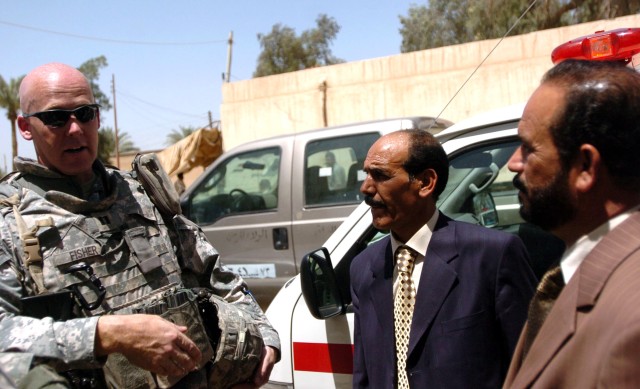
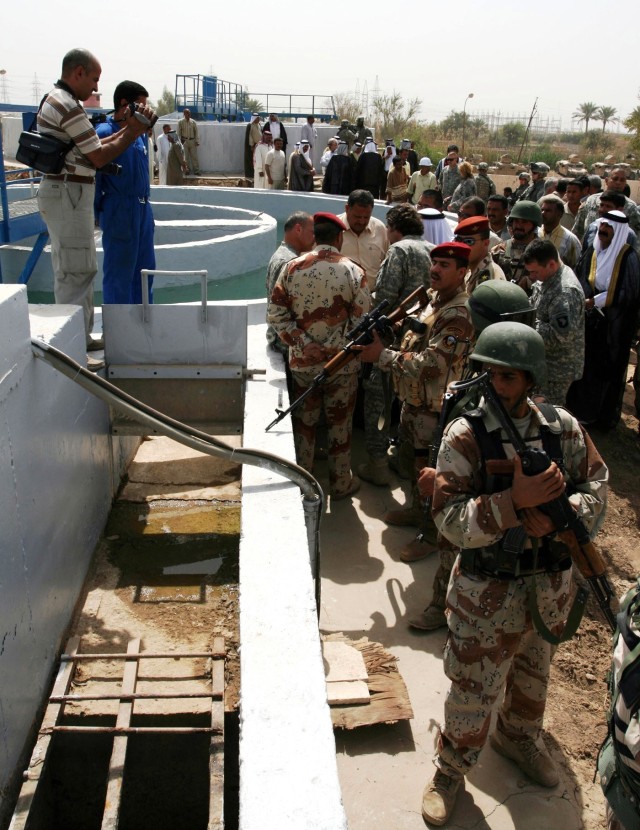
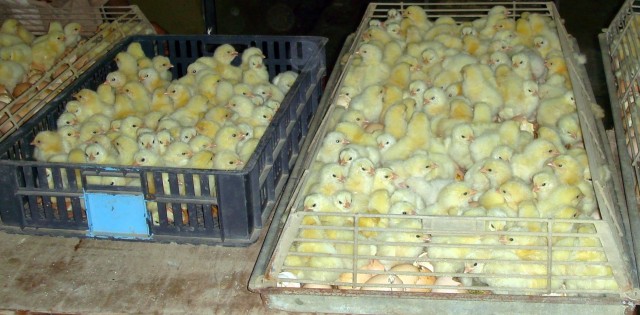
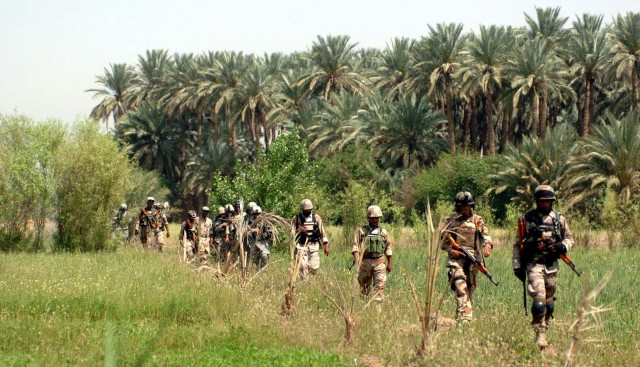
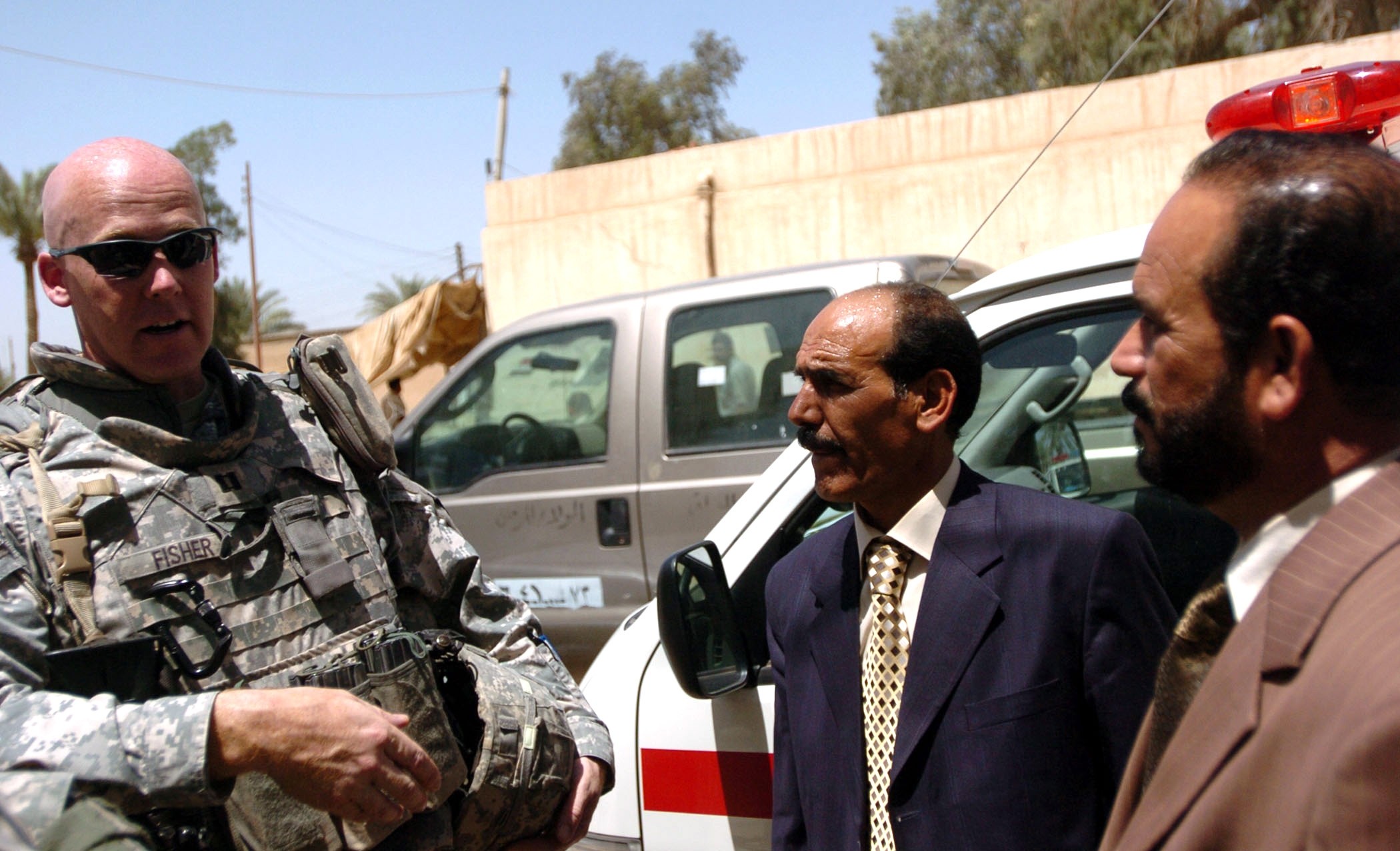
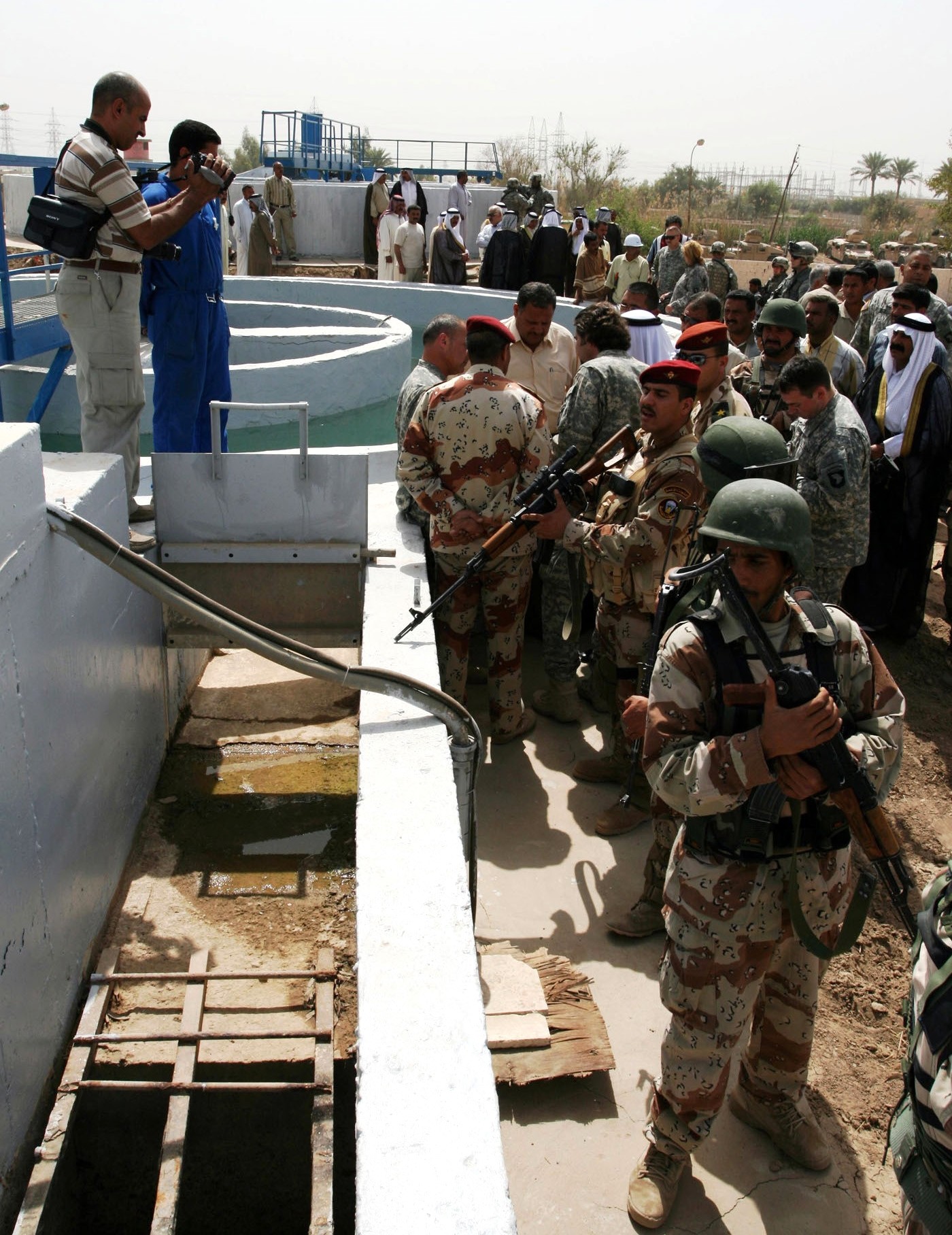
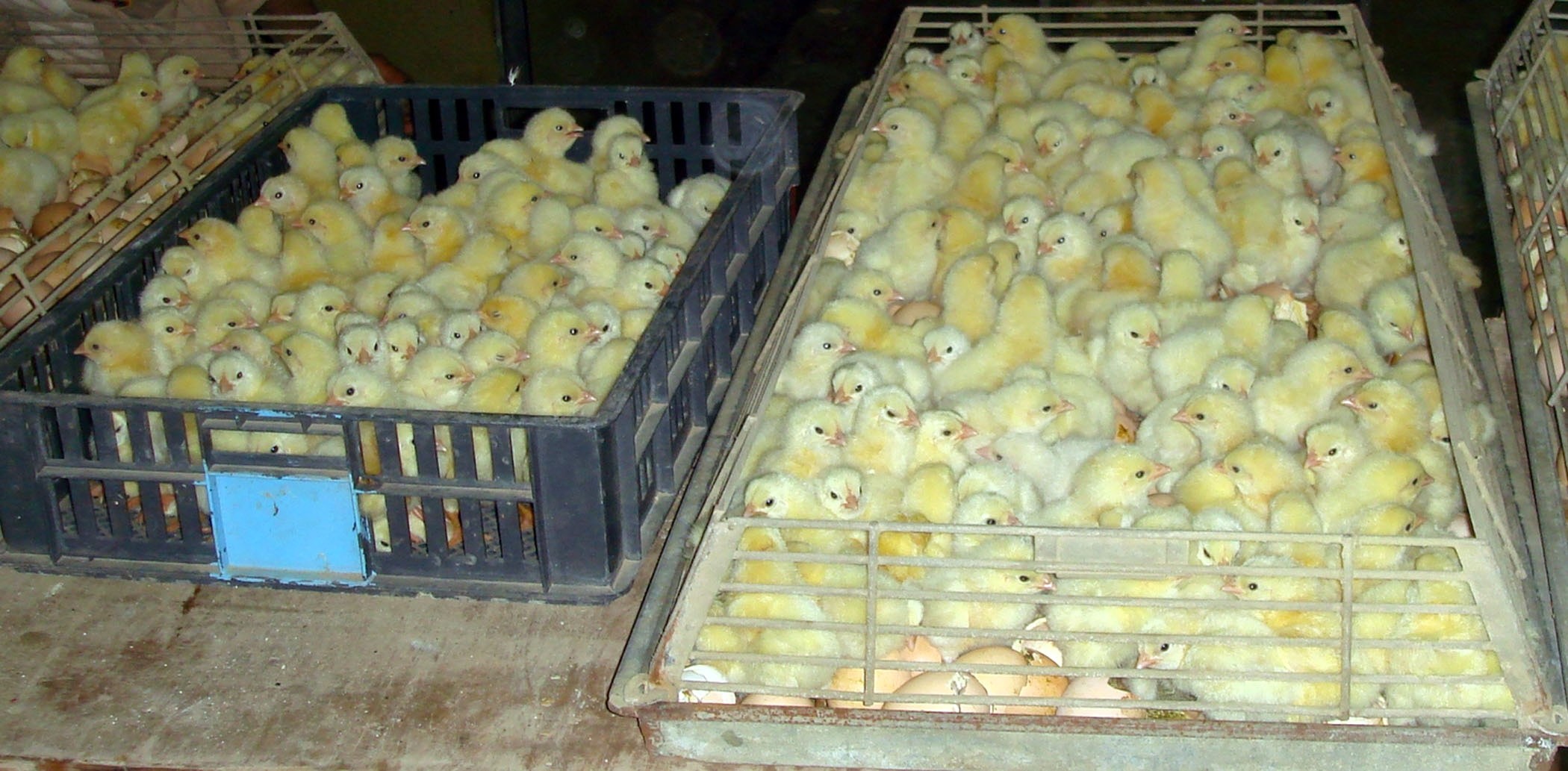
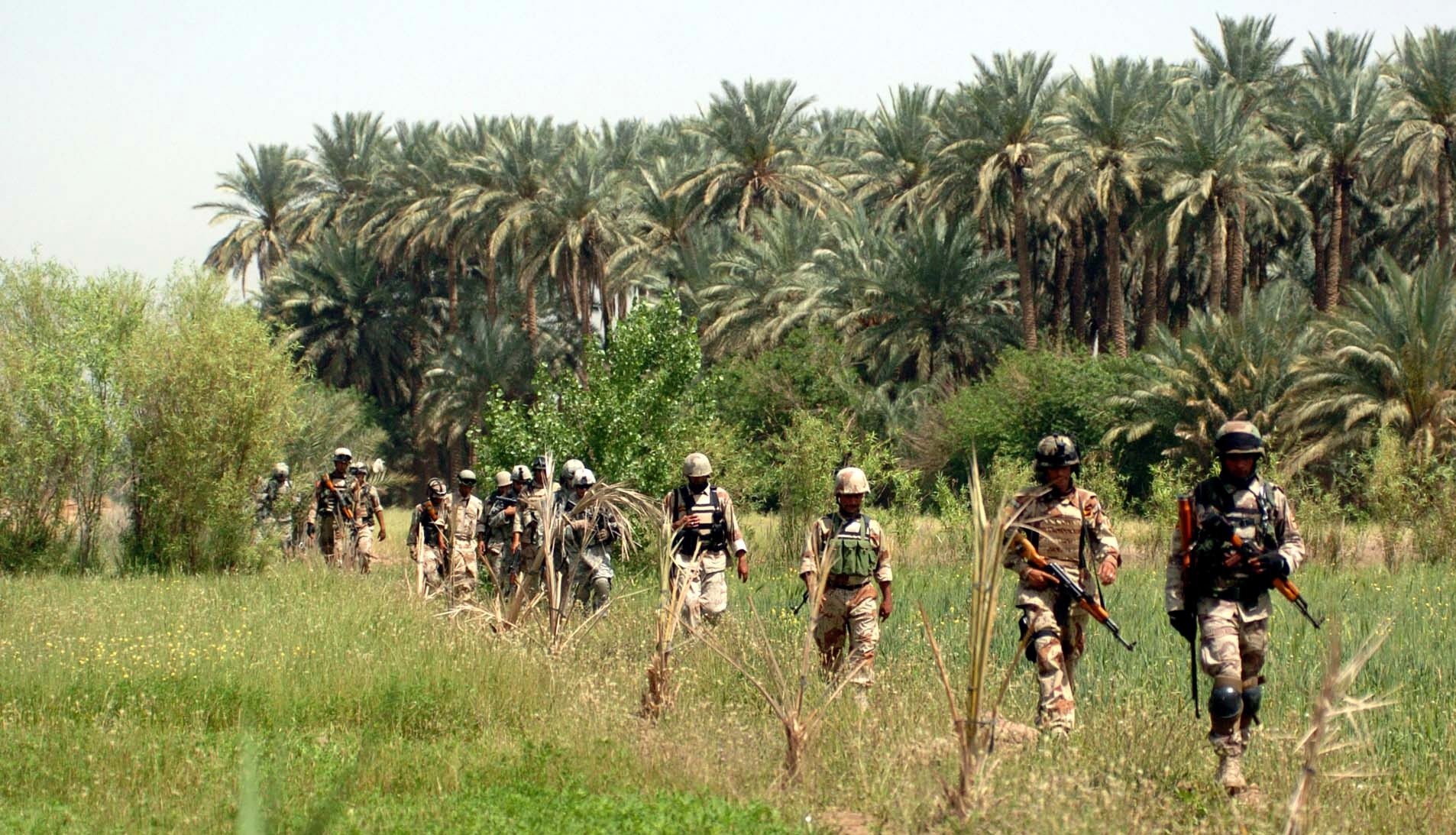
Social Sharing